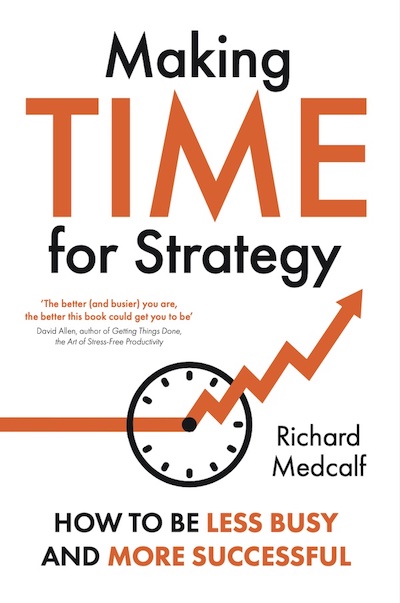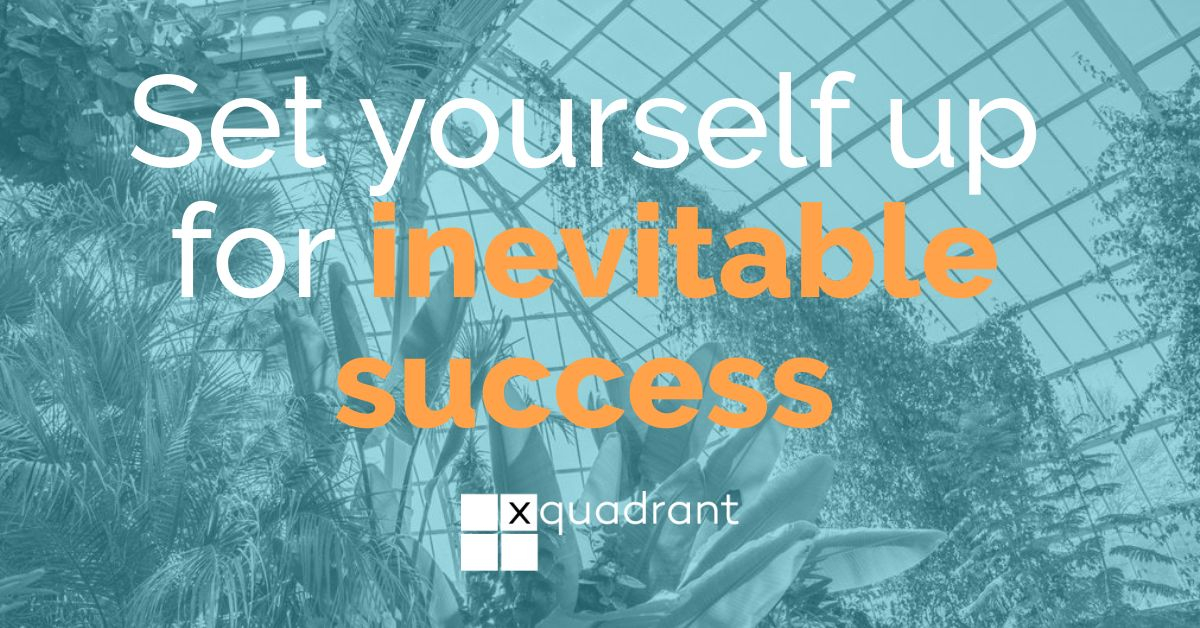Conventional strategies often fall short of catalysing true breakthroughs.
That's why discerning leaders turn to the unconventional, seeking out the strategies that truly propel success to new heights.
So as part of my ongoing commitment to surround myself and my clients with world-class thinking, I reached out to some of the world’s top thought leaders and asked them the following question:
“What's the most unconventional thing you did that catalysed your own success?”
You can read the responses below. It’s a veritable treasure trove of wisdom from highly experienced leaders including several New York Times best selling authors, top 1% podcast creators, the editor-in-chief of Entrepreneur magazine, Thinkers50 Award winners and other global experts.
This curated collection of 48 unconventional strategies, distilled from the experiences of world-class leaders, offers a rare glimpse into the minds of those who have dared to defy the status quo. Each strategy serves as a testament to the power of thinking outside the box, challenging norms, and embracing risk.
I encourage you to delve into these insights. There’s probably one game-changer for you right there.
Once you’ve read the article, why not pay it forward and share it with one highly successful leader you know who’s still open to growing? They’ll thank you for thinking of them.
Unconventional Strategic Tips: Theme #1:
Lean hard into risk
When we can get comfortable with unconventional risk and make it a strategy we’re more likely to move towards exponential progress. Several thought leaders express how they leaned into risk to move the needle on their careers leading to pivotal moments.
Cut 30% of clients to focus on the long game
Dorie Clark is a keynote speaker and teaches executive education at Columbia Business School. A former presidential campaign spokeswoman, she writes frequently for the Harvard Business Review.
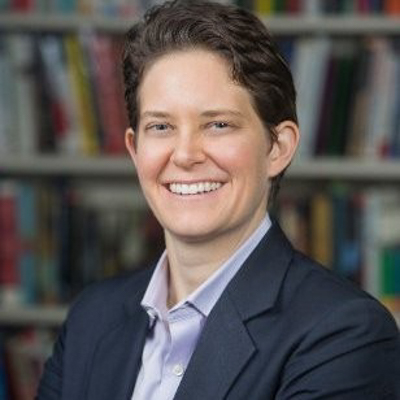
The most unconventional thing I did to level up my business was deliberately cutting out 30% of my revenue and getting rid of my lowest-margin clients in order to reallocate my time toward (almost entirely unpaid) content creation. I needed to enhance my 'discoverability' to attract higher-profile clients - so I went all in on writing articles for high profile publications. It took about 3 years, but my income is now 10x what it was back then.
Abandon the safety net
Mike Vardy is one of the top thought leaders in the personal productivity and time management space, and a renowned international speaker.
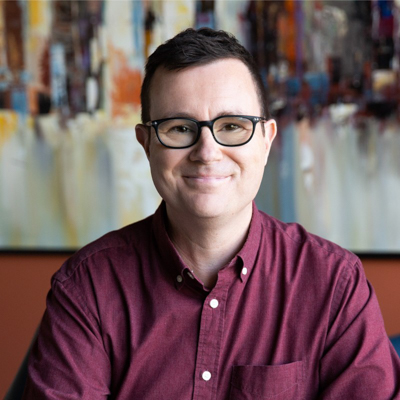
Quitting my day job was the most unconventional step I took towards my own success. Financial stability was not in my favour at the time, but I saw a dimming future in my day job compared to the brighter prospects of my online endeavours. Making the decision to leave, without a safety net, acted as a forcing function. Failure wasn't an option, driving me to focus and ultimately succeed in my online work.
Do something reckless!
Penelope Trunk was named by Inc magazine as “the world’s most influential career coach” and she was on Tech Crunch’s list of top 50 most influential women in tech.
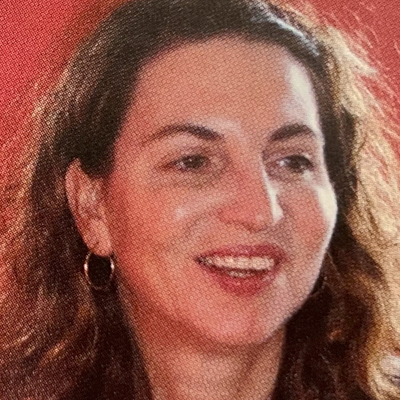
I turned down admission to graduate school to make a long shot attempt at playing pro beach volleyball. This disappointed everyone who had mentored me and made my parents irate. After that, any time I took a risk there was nothing that could make me look worse than that, so I had a sort of reckless freedom that let me try everything I wanted to.
Pursue what scares you a bit
Elisa Farri is Vice President at Capgemini Invent and member of Thinkers50, an author and frequent contributor to the Harvard Business Review.
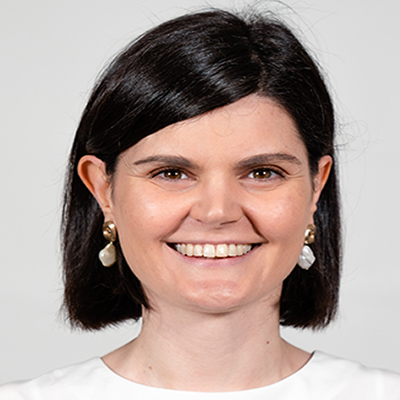
When I look back at my professional journey after graduating, it’s a succession of unconventional choices. Each new job I started had little to do with the previous one. Every time, I put myself to the test and learned new skills on the job. I encourage you to seek the not obvious path that scares you a bit, because that's where real growth happens.
Jump to the end!
Chris Frolic is what happens when you combine one of the world’s best-selling DJs with a comedy stage hypnotist and a multi-millionaire tech co-founder!
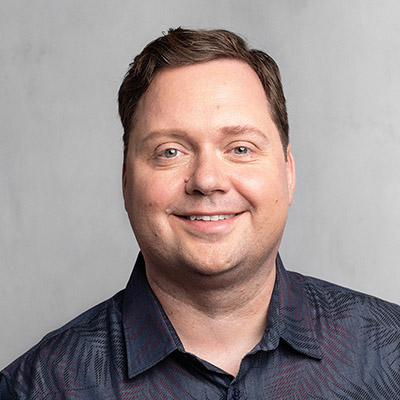
My unconventional success tip is: Jump to the end. Don't give into the story of how something is supposed to be done or the path you're supposed to take to get there. Don't act as your own gatekeeper and come up with reasons to not reach out to someone, make the offer, or do the thing you want. What might happen if you dare try? I'm living proof that this can be done as I've done it multiple times in my life.
10X your financials, 10X your positive impact, 10X your inner peace.
Join our community of 17000+ mission-driven CEOs. The Xquadrant Insider offers bite-sized insights to help you get out of the weeds, mobilise your team and deliver on your most inspiring goals.
We'll never share your information because we're not jerks!
Unconventional Strategic Tips: Theme #2:
Make unconventional connections
Respondents pointed to the power of unconventional connections, emphasising how deep relationships have fueled their business growth.
Find your people of peace
Jeremie Kubicek is a best selling author, speaker and Co-Founder of GiANT Worldwide.
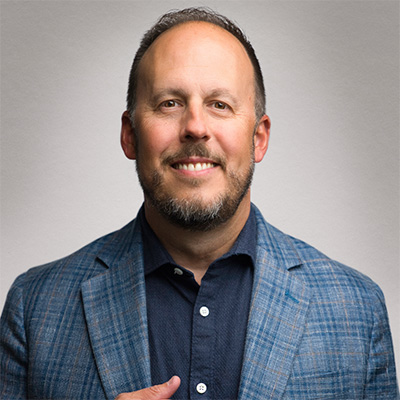
The most unconventional thing that I do is to look for people of peace every day – someone that values you deeply and wants to spread you to everyone they know. I also work to be a person of peace to others. That means that I have to be at peace personally, not allowing comparison or worry to make me a striver.. When I’m at peace I get to use my superpowers to empower others, which makes people of peace want to spread me to others. That is how we’ve scaled our business.
Write handwritten notes
Todd Herman coaches elite humans privately, then builds products and writes books to help more people. 28 years and counting…

In 1997, I met a man who blew my mind and ended up becoming a mentor. It was Jim Rohn, the international mega speaker. He challenged me to write handwritten notes. I took the challenge, turned it into a daily ritual, and have written over 5,800 private one-page letters of gratitude to others: authors, Leaders, Athletes, Artists, Carpenters, and Family. It's the key that's opened up the most doors of luck.
Don’t choose ‘obvious’ hires
Ian Truscott is the founder of Rockstar CMO and, while he’s not a rockstar, he is a three-time CMO, marketing strategist and trusted advisor.
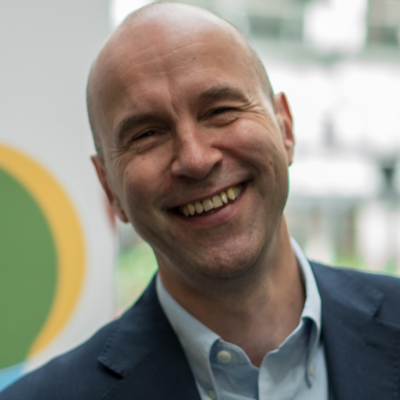
My approach to hiring has been distinctive. Although I am not calling people I have hired unconventional, other people may not have considered them the obvious or safe candidates. I have a career enriched by teams with diverse routes to the industry, education, class, backgrounds, ethnicity and backstories who have undoubtedly contributed to my success.
Flex your trust muscle
Simon Mainwaring is a brand futurist, speaker, author, podcaster, and columnist.
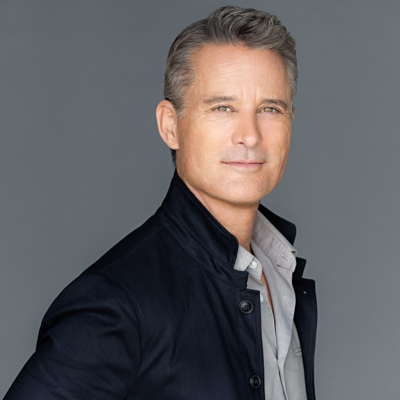
Whether it's a new career path, job offer, or business decision, the most powerful thing you can do is to get out of your way and allow the solution to show up. As CEOs, we are under so much pressure we tend to overwork, overthink, and white-knuckle our way through decision-making. But what if you opened your hands to receive the clarity and answer you're looking for? The more you do it, the more trust you will build, and your leadership will be transformed.
Tell a good story
Steven Goldbach is a globally recognized strategist and bestselling author. He leads Deloitte’s Sustainability practice in the US.
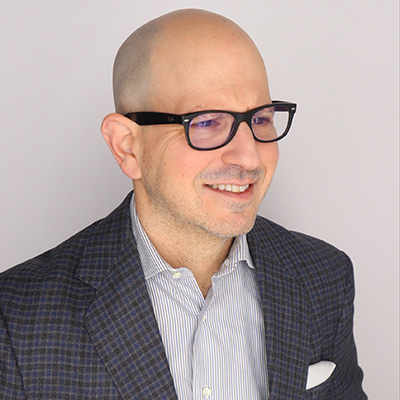
Early on in my career, I invested some time in pursuing a personal passion - attending a “weekend Film School” course in New York City. While it was about the nuts and bolts of filmmaking, it taught me that storytelling and communication is a critical foundational skill for anyone with leadership aspirations. Since then, I've invested time and space for me and my teams to focus on ensuring key messages are well understood.
Your success as a leader depends on you making time for strategic activity.
Richard’s book, Making Time For Strategy, is a comprehensive guide for leaders who want to shift from incremental progress to breakthrough results.
Find out more and read the first two chapters.
Unconventional Strategic Tips: Theme #3:
Leverage setbacks
Several respondents shared insights on leveraging setbacks for growth, underscoring the transformative potential of embracing challenges. The path to getting it right often means getting comfortable with getting it wrong.
Embrace being wrong
Mike Figliuolo is managing director of thoughtLEADERS and author.
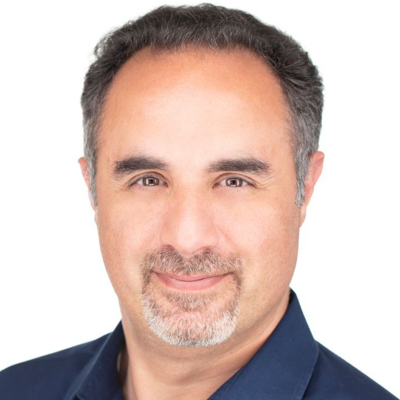
I’ve made plenty of decisions that, at first, seemed good. When confronted with evidence to the contrary, I’ve learned to say “I was wrong. Let’s do something different.” as quickly as possible. When provided with new information, I can make a new decision. Framing it that way makes saying “I was wrong” much easier, so I can dedicate all my energy on the new decision rather than rationalising the old decision and resisting change. The only thing the original decision is good for is to learn how to gather better information for future decisions.
Leverage your hard times
Morra Aarons-Mele is a movement builder, and her work won the Media Award from Mental Health America in 2023.
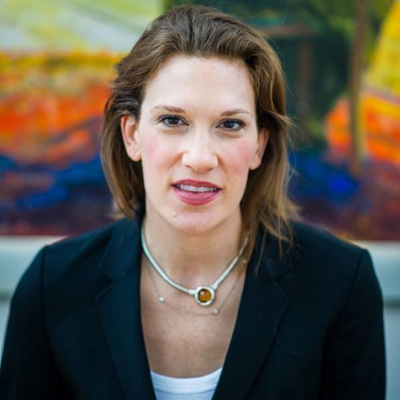
I started speaking openly about how my experience with mental illness, anxiety and depression shaped my career trajectory and led me to create ways of working that worked for me and my brain. I talked about taboo topics such as how my experience of managing anxiety gave me superpowers in business. I started digging into the research and sharing what I was learning about turning disability into valuable leadership skills. Now organisations all over the world seek me out to help them reduce the stigma of mental illness and neurodivergence at work.
Turn setbacks into success
Michael Levitt is a thought leader on HR, burnout, and workplace culture, a CBT and NLP therapist, a Top 50 Global Thought Leader, author and a keynote speaker and executive coach.
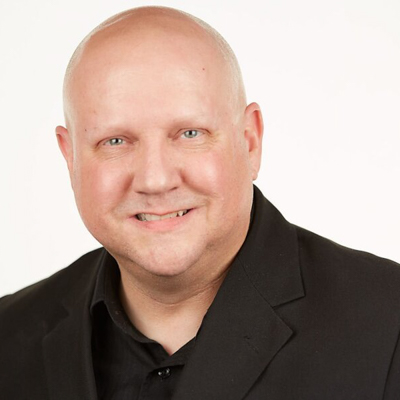
Recognising setbacks as opportunities for growth meant I stopped being afraid of making errors and started using them as learning opportunities. After my significant burnout journey I prioritised self-care to rejuvenate and give my utmost in all that I did.
Say no to say yes
Jason Feifer is the editor in chief of Entrepreneur magazine, a nonstop optimism machine, author, and a widely recognized authority on business and how people navigate change.
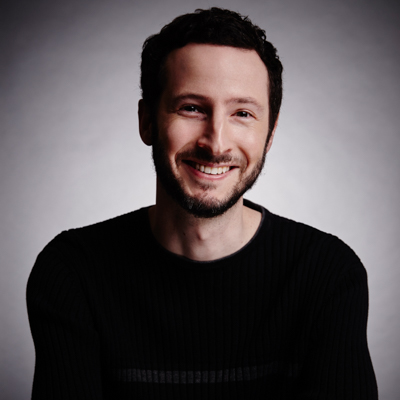
I quit multiple jobs. Each time, it was for the same reason: I was waiting for people to bring opportunities to me — but I realised that I needed to go to them. Quitting freed up my time to pursue new opportunities, to work with more people, and to ultimately build my name, skills, and reputation. Now I know: Sometimes, saying no to one thing is required to say yes to something else.
Use disappointment as fuel
Paulo Cervini: Thinkers50 Radar 2023 | Author of the HBR eBook “Generative AI for Strategy and Innovation” | Co-lead of Capgemini Invent's Management Lab

One of the most unconventional things I did was to naively believe that trust and transparency could actually transform the traditional business landscape, as written in my successful publications. This sheer ingenuity led me through a roller coaster of hopes and disappointments. But instead of giving up, these experiences fueled my resolve, pushing me to find an unconventional ally. That's when I stumbled upon AI, which became not just a tool but a partner in reigniting my quest for ethical management practices.
Unconventional Strategic Tips: Theme #4:
Don’t be ruled by money
Another key theme our respondents flagged was the need to transcend financial obsession, prioritising fulfillment over monetary gains.
Invest big-time…in yourself
Jason Hietbrink “I help with extraordinary top performers reach double their income with half the effort”
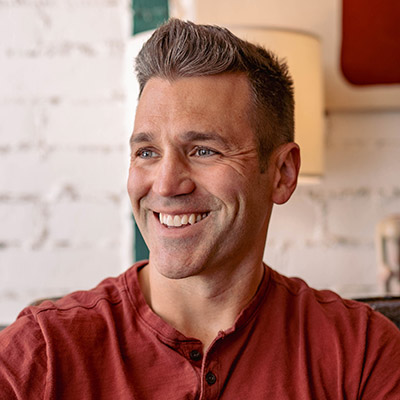
I invested $125k into my own personal/professional growth while I was only making $10k/mo and that investment in myself created $500k within my first 15mo of starting my business. I also take 5 weeks in a row completely off in the summer. Most people would think that'd cut their revenue to take that long of a period of time off but it's done quite the opposite for me.
Stay close to yourself on the winding path
Laura Morgan Roberts, Ph.D. is an organizational psychologist who cultivates strength-based practices with current and aspiring leaders.
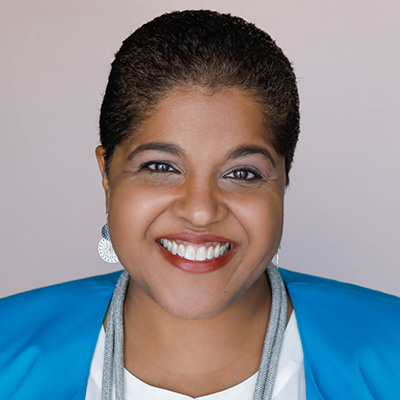
Instead of asking, "What happens if I fail at this (highly sought-after) opportunity?" I asked myself, "What happens if I succeed? Is this the version of life that I want for the next decade?" The answer was, "No." So, despite the risk, I left for a less visible role and was able to grow my impact in a way that felt most genuine. I ended up much closer to my best self than by following what the world expected of me.
A step ‘back’ is often the way forward
Julie Winkle Giulioni is the author of Promotions Are SO Yesterday and co-author of Help Them Grow or Watch Them Go.
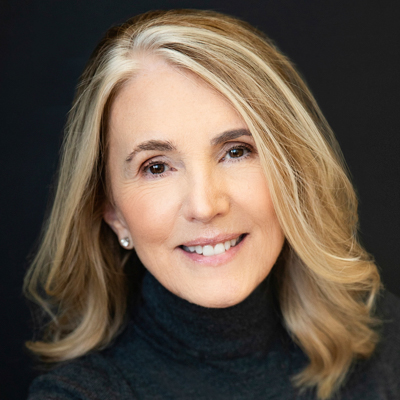
I was in my 20’s and was a professor and department chair at a private university in Southern California. It was a pretty prestigious role for someone so young, and I really enjoyed the job and the students. But my capacity to learn and grow was dramatically capped in that environment. Continued development required a return to industry, but prospective employers were concerned about my ability to translate learning in academia to a business setting. So I took a huge cut in compensation and authority to gain the corporate experience that would allow me to move forward… and that’s exactly what happened!
Take money out of the equation
Nir Eyal writes, consults, and teaches about the intersection of psychology, technology, and business.
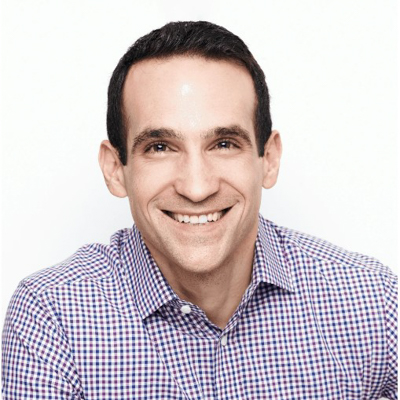
Answering the question, "what would you do if money was no object?" and doing it, was the most unconventional thing I did that catalysed my success. It's how I became a professional speaker and author. Asking this question unlocked my dream job.
Make a long-term difference
Marshall Goldsmith is a New York Times #1 bestselling author.
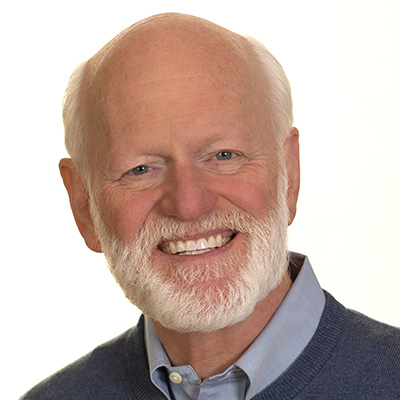
My mentor Dr. Paul Hersey told me that my clients were all happy, that I was making too much money and that, at the present pace, I would never become the person I could be. He said, “You can be more!” This talk changed my life. I quit just looking for today’s success and started focusing on making a positive, long-term difference.
10X your financials, 10X your positive impact, 10X your inner peace.
Join our community of 17000+ mission-driven CEOs. The Xquadrant Insider offers bite-sized insights to help you get out of the weeds, mobilise your team and deliver on your most inspiring goals.
We'll never share your information because we're not jerks!
Unconventional Strategic Tips: Theme #5:
Run eye-raising experiments
Many of our experts found that experimenting with what seemed fun, bold and interesting brought them more success than sticking to the predictable and prescribed.
Get involved however you can
Rita McGrath is a best-selling author, a speaker, and a professor at Columbia Business School.
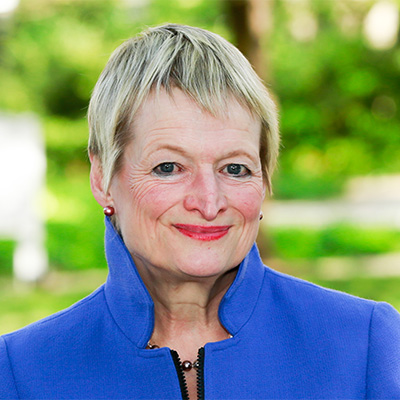
In high school, I fell in love with the idea of being in the theatre but didn’t think I had acting talent, so I volunteered to run the props department. After a couple of years of doing that (missing many family dinners in the process), I was persuaded to do an actual audition for a regional theatre company, got a really fun part in a character role and left props behind to be on stage. The experience was terrific training for my future career in teaching and speaking.
Run unusual experiments
Pia Lauritzen is a Danish philosopher, writer and keynote speaker, and is the inventor and founder of Qvest and Question Jam.
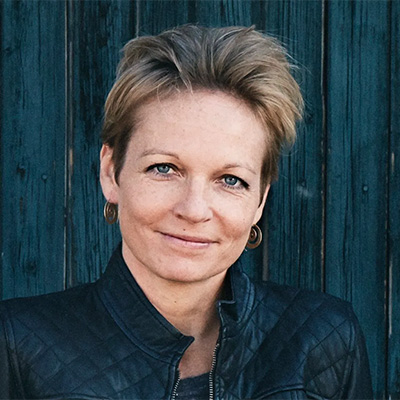
I taught philosophy to a class of 2nd graders, as an experiment inspired by a conversation I had with my 8-year old son, and it completely changed my view on leadership, education, and what it means to be human in a tech-obsessed world. Since then, everything I think, write and say has been about reminding myself and others of the innate insights and skills we all have, but rarely talk about.
Don’t get too established
Mohan Subramaniam is a professor of Strategy and Digital Transformation at IMD in Switzerland.

After establishing myself within a purely academic institution in the United States, I took an unconventional leap by relocating to a European school renowned for executive teaching. This bold move not only expanded my horizons as a thinker but also enabled me to bridge theory with real-world practice, ultimately catalysing my success by fostering impactful contributions to both academia and industry.
Share your best ideas
David Meerman Scott is a business growth strategist, advisor to emerging companies, and international bestselling author.
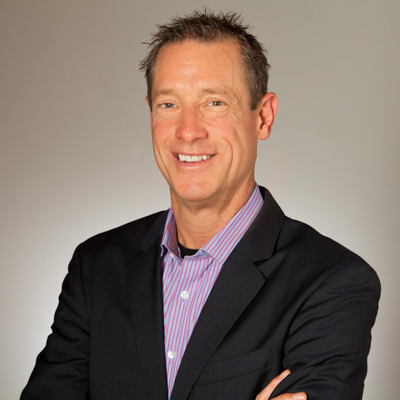
When I pioneered the idea of Newsjacking (the art and science of injecting your ideas into a breaking news story to generate tons of media coverage, get sales leads, and grow business) I didn’t try to trademark or copyright the idea, though everyone said I should. Instead I made the idea freely available. Since then, there are books about newsjacking, agencies doing newsjacking, a quarter million hits on Google about newsjacking, and it is even in the Oxford English Dictionary and all point to me generating tons of attention for my ideas.
Your success as a leader depends on you making time for strategic activity.
Richard’s book, Making Time For Strategy, is a comprehensive guide for leaders who want to shift from incremental progress to breakthrough results.
Find out more and read the first two chapters.
Unconventional Strategic Tips: Theme #6:
Build unusual habits
Our respondents emphasised the importance of building success habits, sharing how consistency and routine have propelled them towards achievement.
Focus on your repeated actions
Gary A. DePaul is an author, keynote speaker, adjunct professor, Distinguished Principal Research Fellow, and host of the Unlabeled Leadership podcast.
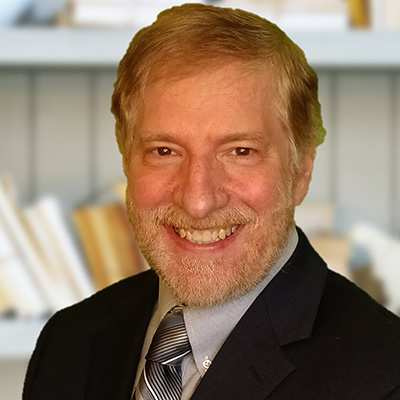
To succeed, you must change your paradigm: Give up on chasing the quantum leap, viral post, quick fix, or lottery. Instead, focus on your daily, repeated, and consistent actions. When you walk the tightrope, don’t look down. Likewise, when you climb the mountain, don’t look up. Concentrate on each step in that moment and make each completed step your reward. Doing daily steps is easy to do, but doing daily steps is also easy not to do! What’s difficult is going against common sense, and that’s why being an exemplar is rarer than being average.
Persist despite the pain
Howard Yu is the LEGO® Professor of Management & Innovation, and Research Director of the Center for Future Readiness.
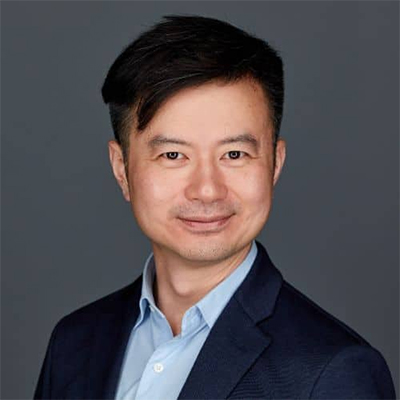
I used to play the electronic organ when I was a kid. Every time I tried to learn a new song I always thought I could never master it. But somehow, with lots of practice, after a week or two, I was playing it easily. It taught me that the pain of incompetence is a signal that you are learning and you’ll be able to acquire the new skill if you persist. That’s the foundation of grit and growth.
Find your creativity peaks
Tammy L. Madsen is the W.M. Keck Foundation Chair & Professor of Strategy & Innovation and Sr. Associate Dean at Santa Clara University, Vice President of the Academy of Management, and shortlisted for the Thinkers 50 2023 Strategy Award.
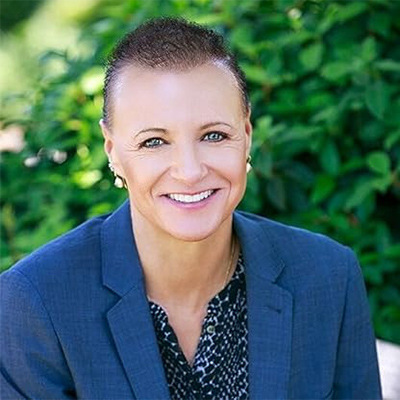
Instead of simply working hard, I ask myself whether I am harnessing creative thinking effectively or merely grinding through. By recognizing my peaks and troughs of creativity, I learned to allocate my focus and time accordingly – protecting the time of day when deep thinking and intense creativity flows and using other parts of the day for more mundane tasks.
Focus on 12-week goals
Erik Fisher is the producer and host of the long-running Beyond The To-Do List podcast.

Instead of getting lost in the haze of a year-long horizon, I now break down my ambitions into 12-week chunks, which has sharpened my focus and ramped up my execution speed. This shift has not only aligned my daily efforts more closely with my ultimate objectives but also made me more agile, allowing me to adapt quickly as things change. What's more, the thrill of hitting my targets more frequently keeps me motivated and engaged. It's like giving myself a fresh start every three months.
Ditch your phone completely
Martin Lindstrom is the founder and chairman of Lindstrom Company.
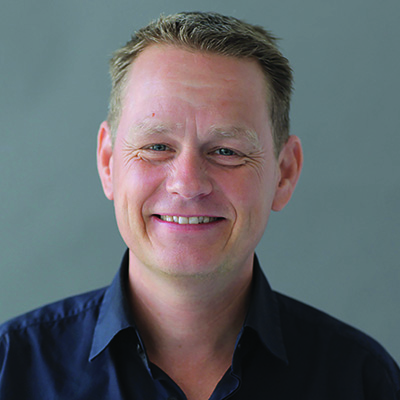
I chose to disrupt the status quo choice by skipping my phone all together and giving myself the opportunity to focus my attention on what's right in front of me.
Change how you change
Jim Rembach - “Who knows how unconventional I may get in my thinking, it's even caused me to launch an AI startup for female entrepreneurs - call me crazy;-)”
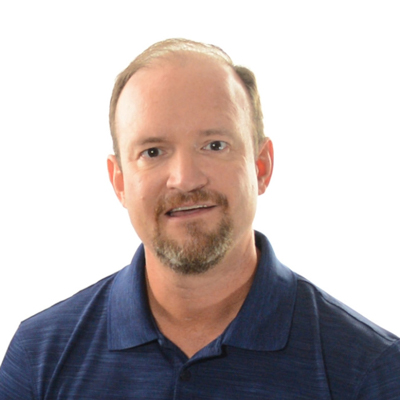
I stopped following conventional thinking and strategic planning. SWOT made me see too many threats and weaknesses and turn inward and depressed. Retrospective Engineering, a similar concept used by chess grandmasters, enabled me to see the game backwards and to work forward faster. Change is a must and change is constant, but how you implement transformative change is the secret. When we don't change how we change, things don't remain the same, they get worse.
Unconventional Strategic Tips: Theme #7:
Handle fear differently
Several respondents shared their experiences of conquering fear, highlighting how it has unlocked new levels of potential in their lives.
Don’t let fear dictate action
Martyn Newman is an author, and a clinical and corporate psychologist with an international reputation as an expert in emotional intelligence (EQ) leadership and mindfulness.
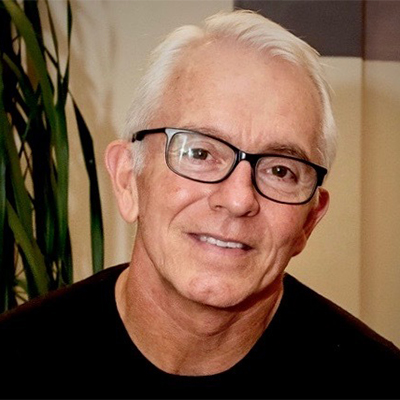
Awakened by the shrill alarm at 3am in a Manila hotel room, I found myself summoned to Mindanao, where a village lay ravaged by the greed of a local Mayor. Upon arrival, chaos reigned as a bulldozer mercilessly tore through homes, claiming innocent lives. With camera in hand, I documented the horror unfolding before me and – daringly – I halted the machine, earning the villagers' cheers but inviting the wrath of the militia. Gunfire erupted; fear gripped me as I stared down the barrel of a gun. Defying the intimidation, I captured the commander's image. Miraculously I survived, and the villagers secured a lease on their land. I gleaned a vital lesson: as a leader, fear must not dictate action. That has guided my leadership decisions ever since.
Engage with what matters
Greg Bernarda is an author, and the initiator of the up-ruption concept and mentors leaders and teams in working collaboratively to invent the(ir) future.
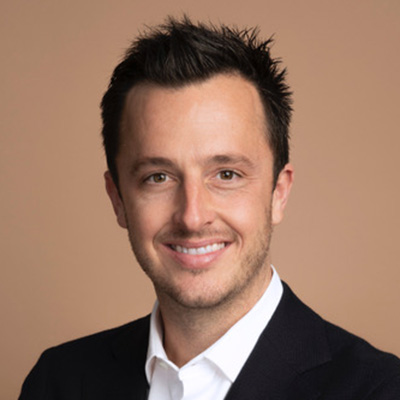
The moment I overcame my fear of incorporating my personal experiences in my public speeches, I met the people I wanted to work with and concerns about being relevant or 'correct' simply evaporated. This shift also brought support and new paths for my work from unexpected sources. The more I engage with what truly resonates with me, the more it seems to be of value to the outside world.
10X your financials, 10X your positive impact, 10X your inner peace.
Join our community of 17000+ mission-driven CEOs. The Xquadrant Insider offers bite-sized insights to help you get out of the weeds, mobilise your team and deliver on your most inspiring goals.
We'll never share your information because we're not jerks!
Unconventional Strategic Tips: Theme #8:
Blend unique ingredients
Respondents pointed to the significance of blending unique elements, showcasing how embracing diversity has set them apart in their industries.
Embrace your multi-hyphenate ambition
Rahaf Harfoush is a Digital Anthropologist and New York Best Selling Author.

Rather than confining myself to a traditional career path with a single domain, I embraced the concept of a career mash-up, combining elements from various fields to create a portfolio that's uniquely mine. This journey was about actively seeking inspiration from a diverse range of sources to forge my own path and it ended up being one of my biggest competitive advantages, fulfilling me and creating something uniquely impactful.
Commit to a creative life
Jean Gomess is an award-winning thought leader, author, trusted advisor, and coach to over 80 CEOs and senior executives.
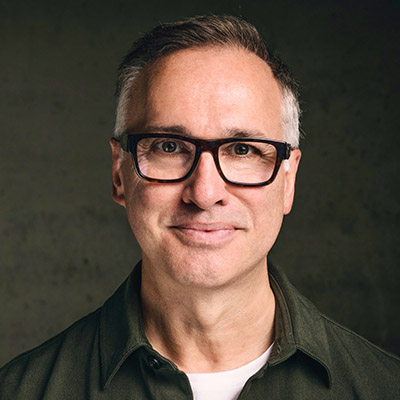
The most unconventional thing I’ve done in my career was to set out a purpose at 25 to lead a ‘creative life’ in an environment that generally demands the pragmatic, rational and numeric. It’s led me to constantly produce new ideas and solutions, working with over 100,000 people to deliver change, and find, in my seventh decade, a new company purpose; ‘be a driving force of human evolution’.
Lean into the dramatic pivot
Heidi Gardner is a distinguished fellow at Harvard Law School and bestselling author, and was named by Thinkers50 as a Next Generation Business Guru.
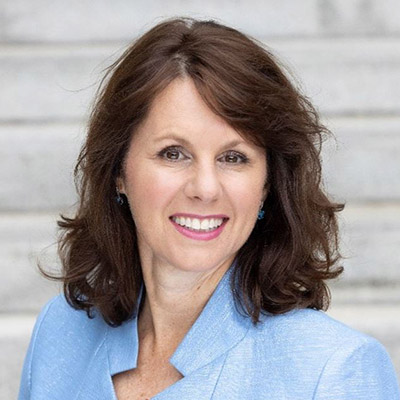
The most unusual yet pivotal career move was leaving an exciting and lucrative role at McKinsey to pursue a career in academia. Since that pivot, I have produced an incredible body of insights that helps guide organisational leaders across the globe. I now combine both my analytical and consulting skills to provide deeper, more actionable advice for my clients to achieve their strategic goals, and nurture a thriving firm.
Apply insights into new contexts
Andrea Simon, Ph.D., CEO of Simon Associates Management Consultants, is a corporate anthropologist, culture change expert, and an explorer at heart.
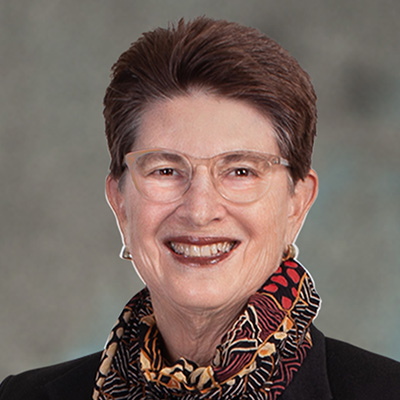
Against conventional career paths, I embraced anthropology as my passion, recognizing its profound insights into human behaviour and adaptation. I applied anthropological principles not just within academia, but also in diverse contexts such as business, leveraging its insights to drive success.
Don’t take yourself too seriously
Perry Carpenter is the founder of 8th Layer Media, podcast host and author.
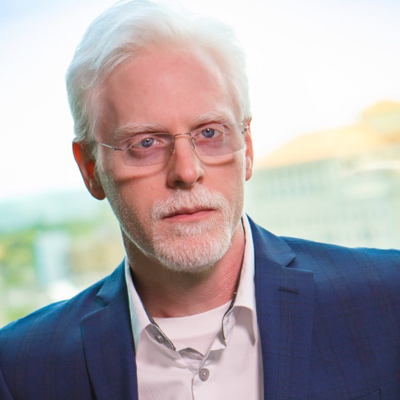
While most cybersecurity podcasts are extremely formulaic, I decided to embrace some of my most quirky impulses in my 8th Layer Insights podcast. I've been known to be 'interrupted' by scammers posing as Morgan Freeman telling me that he wants to work with me on a project, to a call with Darth Vader peddling extended car warranties. That mindset of playfulness has paid off to the point that we’ve doubled-down on it for our newest show.
Break through the noise
Gresham Harkless is an entrepreneur, blogger, founder and content creator at CBNation and founder and digital marketing specialist behind Blue 16 Media.
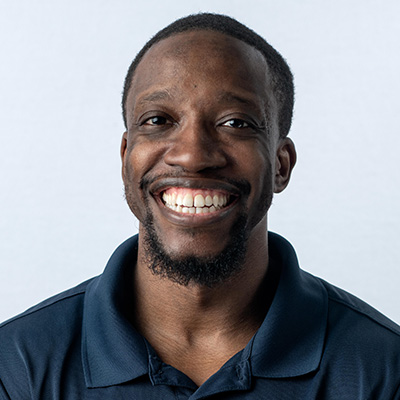
The most unconventional thing that I did to catalyse my success was to start the blog and the podcast. I did that largely because content has been something that I've always gravitated to from a very young age, starting my first "media company" aka our family newspaper at 10. Even though we do digital marketing services, that “media company mindset” is our secret sauce, and was very unconventional.
Blend AI with human connection
Jurgen Strauss is the World's Best Human-Centred Podcasting Coach: guiding high-impact achievers to build a world of vibrant connections and transform their businesses through the power of podcasting.

In my journey, podcasting became a pivotal strategy not just for content creation but for fostering a deep, engaged community that catalysed my business growth. I've blended the innovative capabilities of AI with the irreplaceable value of human connections, guiding clients to create resonant, authentic content. This human-centred approach extended to my marketing philosophy, leveraging empathy and deep understanding.
Your success as a leader depends on you making time for strategic activity.
Richard’s book, Making Time For Strategy, is a comprehensive guide for leaders who want to shift from incremental progress to breakthrough results.
Find out more and read the first two chapters.
Unconventional Strategic Tips: Theme #9:
Explore untapped potential
Another key theme our respondents highlighted was the importance of leaning into untapped potential, emphasising the role of bold innovation in driving success.
Embrace bold innovation
Vladimir Gendelman is Founder and CEO of Company Folders, winner of multiple awards, and thought leader in print, design, business, and entrepreneurship.
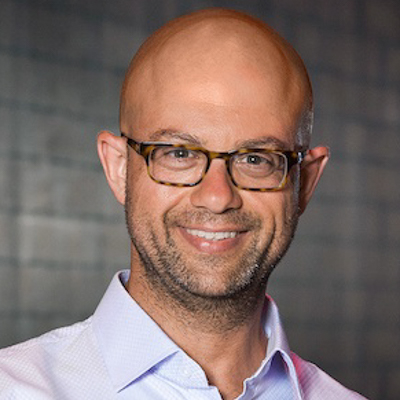
In 2003, I ventured into an unconventional path by launching an online shop for printing presentation folders, a concept virtually unheard of at the time. This bold move not only set us apart from the competition but also tapped into a niche market that was ripe for innovation. We were able to offer a level of convenience and customization that traditional brick-and-mortar printing businesses couldn't match. This underscored the power of foresight and of embracing technological advancements to stay ahead.
Pioneer new insights
Mark Greeven is a Professor of Innovation and Strategy, and ranked on the 2023 Thinkers50 list of global management thinkers.

Diving deep into China's innovation scene in 2005, became the cornerstone of my career. Inspired by my advisor Barbara Krug, my exploration of Zhejiang province's dynamic business environment at a time when China was pivoting from manufacturing to technology and management innovation opened a new world of insights. This has enabled me to share these critical observations with business leaders globally.
Seek out the white space
William D. Eggers is an author and the Executive Director of Deloitte’s Center for Government Insights.
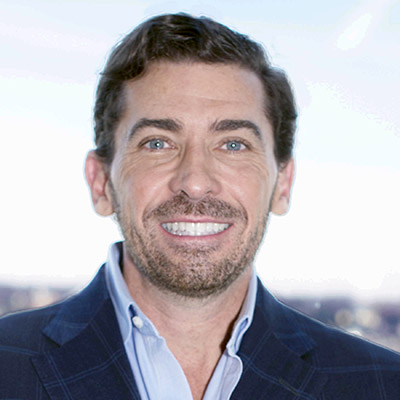
Age 21, I dedicated myself to making a meaningful impact in the marketplace of ideas. While many of my peers pursued a broad approach, I sought out areas with the most untapped potential. It soon became evident that this lay within the intricate realm of government management, rather than the more commonly explored field of public policy. I made a deliberate choice to immerse myself in this domain for decades, allowing me to attain mastery in the subject.
Harness perpetual reinvention
Ravin Jesuthasan is the global leader of Mercer’s Transformation Services business. He is a recognized global thought leader, futurist and author on the future of work, automation and human capital.
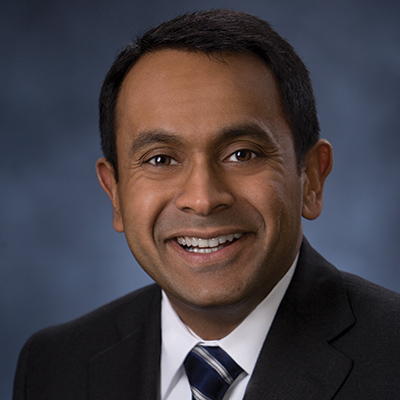
I feel like my entire career has been about perpetual reinvention. Continuously challenging myself to not allow my legacy, however comfortable it might be, to define my future. The quote that perfectly encapsulates my journey is one from the great futurist Alvin Toffler; “The illiterate of the 21st century will not be those who can’t read and write. It will be those who can’t learn, unlearn and relearn”
Unconventional Strategic Tips: Theme #10:
Trust the unexpected
Several respondents underscored the transformative power of trust in leadership, sharing how it fosters innovation and collaboration within teams.
Trust your inspiration
Nicole Jansen is a leadership coach and strategic business advisor, she is passionate about building great leaders, with the aim of creating a better world for everyone.
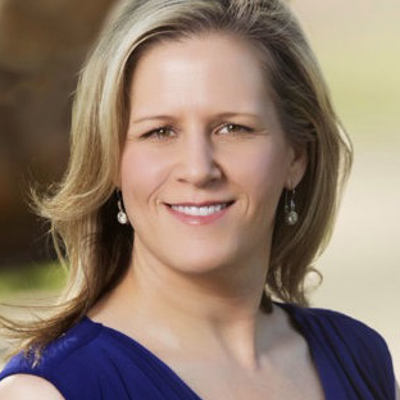
As a strategic business coach, launching a podcast without a real marketing or business plan is counterintuitive and counterproductive. But I just knew that this is what I had to do, based on what I believed God told me very clearly. “Do this – NOW.” So, sleepy-eyed at 4:30am, I got out of bed and got busy. I had no idea what a podcast was or how to start one. 3 weeks later we were live, and today it’s a top 1.5% podcast globally with nearly 500 episodes. Ideas are a dime a dozen. Inspired action is priceless.
Trust the data
Pete Mockaitis is an award-winning trainer and coach who helps professionals perform their best at work. His work has appeared in The New York Times, Forbes, and Inc.
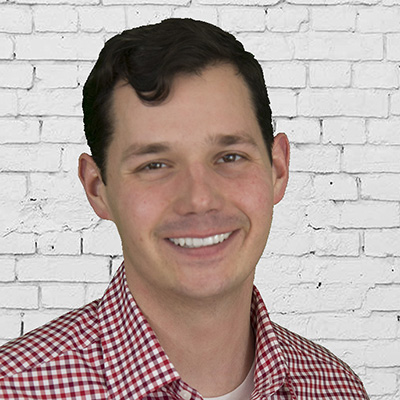
When I had the idea for the How to be Awesome at Your Job podcast, I resolutely refused to start it based upon my enthusiasm. I vowed: There must be strong, compelling evidence that there's demand for this thing…or I refuse to make it despite my excitement. So, I did extensive research with the default assumption that nobody cares about my idea unless I saw overwhelming evidence to the contrary. I learned that 4% of knowledge workers were 10/10 extremely interested in listening to my show concept and that was plenty. So I launched and the project got tremendous traction.
Trust your team
John Spence is one of the top business and leadership experts in the world.
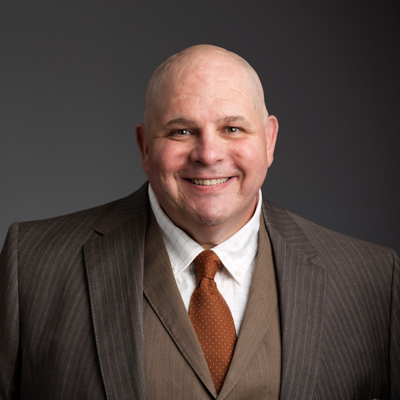
This doesn’t seem very innovative today, but it was highly unconventional at the time. In 1994, I ran one of the Rockefeller Foundations. Laptops were just being introduced. I got one for everyone on my senior team and told them, “Come and go as you please. As long as your work is on time and world-class, do it wherever and whenever you want to.” It taught me a critical business lesson. Hire great people, trust them, and get out of their way. That philosophy has had a profound positive impact on my success.
Trust shared leadership
David Allen is the creator of the Getting Things Done (GTD) methodology.
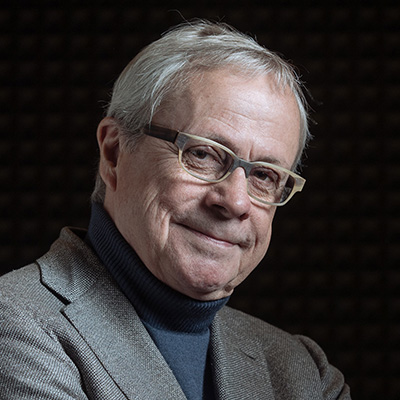
The most unconventional thing I’ve done in my career was fourteen years ago to adopt Holacracy as my company’s operating system, so I could give up the role of CEO and focus on what I’m better at—recognizing productivity best practices and managing their expression and distribution.

